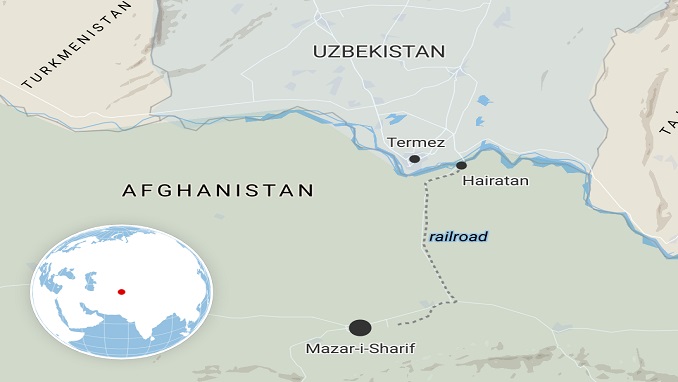After a short hiatus in cooperation, Uzbekistan and Afghanistan have allowed the full resumption of vital cargo and aid deliveries between the two countries by signing an agreement on an Uzbek-operated railroad that runs on Afghan territory.
Since the agreement resolves a dispute over the railroad Afghanistan uses to receive much of its humanitarian aid and around half of its imports, this will come as a relief to Kabul.
Claiming that the Afghans had not met commitments to carry out technical work on the route linking the Afghan border town of Hairatan – gateway for about half of Afghanistan’s imports- with the northern city of Mazar-i-Sharif, which was opened in 2011, Uzbekistan Railways, who has built that link, had halted traffic to Afghanistan from February 1.
The railroad link from the Uzbek border, which was operated by Uzbekistan Railways’ subsidiary, Sogdiana Trans, provided a lifeline for the Afghan people and the Taliban government, which is under international sanctions, allowing deliveries of cargo and aid.
In line with the action plan that those two companies signed in December with the Afghanistan Railway Authority (ARA), Afghan workers should’ve completed the technical work inside Afghanistan by February 1.
When ARA failed to do so, Uzbekistan Railways said on January 31 it would be suspending all traffic, noting that, in the meantime, Sogdiana Trans would help continue cargo transportation to Afghanistan by road and through the Uzbek border city of Termez’s river port, which is a key logistics center for aid delivery.
The dispute is now resolved and Uzbekistan Railways announced that Sogdiana Trans last week signed an agreement with the ARA to continue operating the track for two years without specifying what had been agreed about the technical work.
Since then, both parties agreed to expedite the dispatch of cargo after the delays, resuming some deliveries earlier so over 714 carriages of goods arrived on February 10 and 11.



